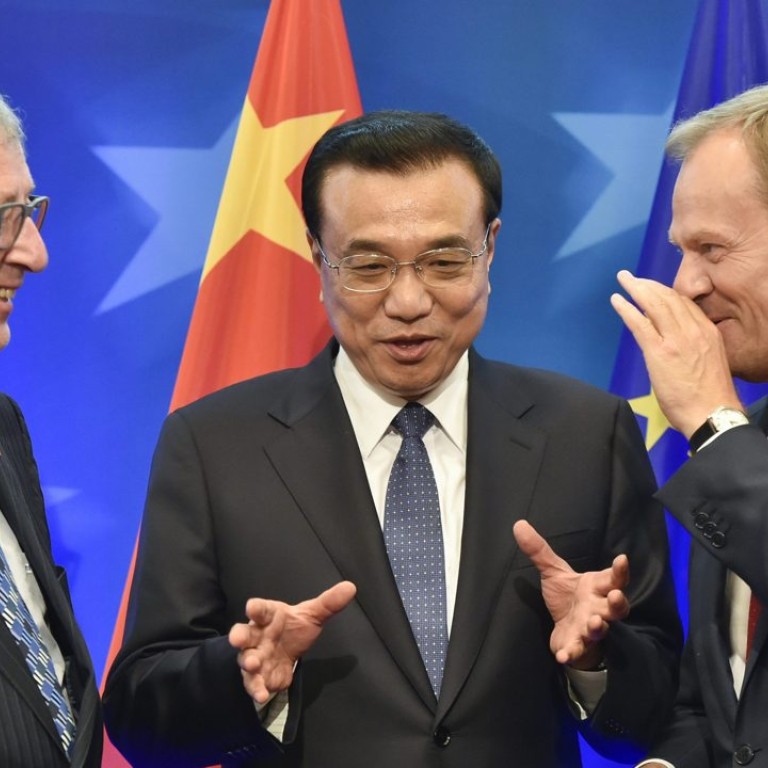
European Union must unite to grant China market-economy status that will benefit all
The more the Chinese and international economies integrate, the better the chances of global peace and stability
Trade negotiations between governments are hard-fought affairs, the gains and disadvantages considered in excruciating detail. That will be especially so for talks starting today among the 28 commissioners of the European Union on whether China should be granted market-economy status at the end of the year. Jobs and the viability of companies involved in manufacturing are at stake, but divisions and political sensitivities among members of the bloc and with the US will also feature.
As necessary as the debate may be, though, the only sensible outcome is to quickly give approval; the benefits for Chinese, Europeans and people throughout the world far outweigh the potential losses.
READ MORE: Market economy debate really about anti-dumping shenanigans
Winning the status is one of Beijing’s biggest ambitions. Although 80 countries have already given their backing, the EU, US, Canada and several other developed economies have yet to do so, their reluctance being driven by concerns about their steel and manufacturing industries. Approval would mean that anti-dumping taxes against Chinese exports could no longer be levied, as has happened in recent years with goods including solar panels, textiles and bicycles.
Beijing contends the terms of its accession to the World Trade Organisation in 2001 means that it will automatically become a market economy at the end of the year. Britain supports that stand and Germany, Europe’s largest economy, backs it in principle. But France is opposed and EU nations where traditional industries like steel, textiles and ceramics are still important, argue that they will suffer should the floodgates be opened to cheaper Chinese versions; up to 3.5 million jobs are estimated to be involved. Other trading partners, the US the most vocal, claim opening up will have adverse knock-on effects.
READ MORE: Britain backs China’s bid for free-trade pact with the European Union
But dropping trade and investment barriers benefits Europeans by providing less expensive goods and giving companies greater access to China’s ever-growing markets. That would be especially so for firms higher up the value chain involved in advanced technologies. Choice and variety would be increased for Chinese consumers and the impetus for economic reforms pushed. The world also benefits; the more the Chinese and international economies integrate, the better the chances of global peace and stability.
The more the sides coordinate and work together, the greater will be the benefits and the international knock-ons. Granting market-economy status to China will take that to a new level.

